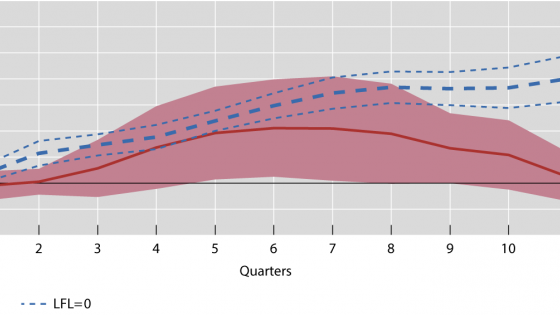DP16799 Corporate Legacy Debt, Inflation, and the Efficacy of Monetary Policy
The COVID-19 pandemic has coincided with a rapid increase in indebtedness. Although the rise in public debt and its policy implications have recently received much attention, the rise in corporate debt has received less so. We argue that high levels of corporate debt may impede the transmission mechanism of monetary policy and make it less effective in controlling inflation. In an environment with working capital financing requirements, when firms’ indebtedness is sufficiently high, the income effect of higher nominal interest rates offsets or even dominates its usual negative substitution effect on
aggregate demand and is quantitatively important. This mechanism is independent of standard financial and nominal frictions and aggravates the trade-off between inflation and output stabilisation.

